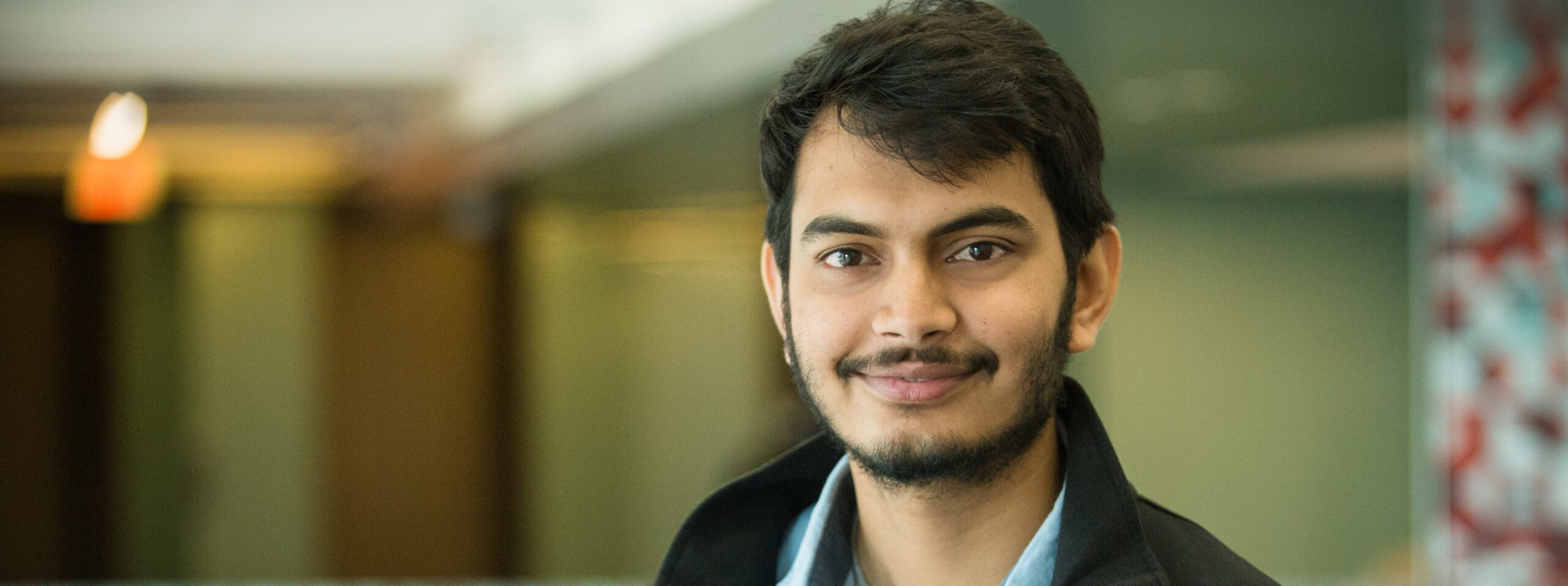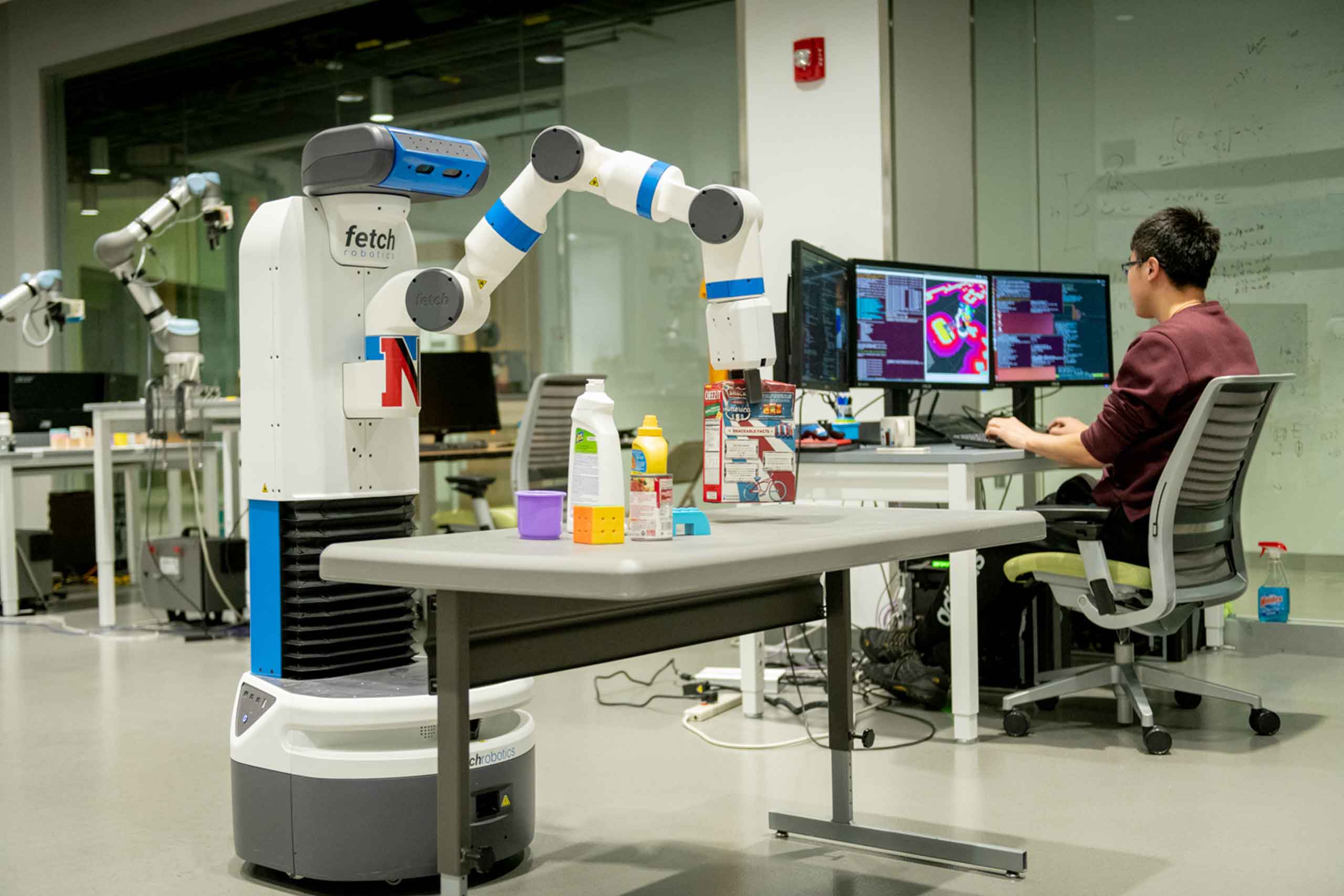

Aditya Ponnada










Aditya Ponnada is a PhD student in the Personal Health Informatics program at Northeastern University’s Khoury College of Computer Sciences, advised by Professor Stephen Intille.
Aditya spent his undergraduate education at the Indian Institute of Technology in Guwahati, India, where he earned a Bachelor in Design (BDes) degree in Industrial Design. Before coming to Northeastern, Aditya spent two years as a User Experience Researcher at Samsung Electronics, where he worked on the company’s personal health application, S-Health and their text-input methods on galaxy devices.
At Northeastern, Aditya’s research includes the fields of personal health informatics, human-computer interactions, and mobile/wearable interaction design. In particular, he is designing ways of gathering high temporal density self-report data using mobile/wearable technologies to measure behaviors that sensors cannot measure independently.
I am working on a new self-report behavior measurement technique that uses quick glanceable microinteractions on a smartwatch to gather self-report data (by just asking people about their experiences). This method could be used to measure behavior in real-world settings for health behavior and ubiquitous computing research. I am also working on designing a human-computation game that crowdsources annotation of large-scale raw sensor data collected in naturalistic settings.
My research interests are at the intersection of computer science, health behavior research, and interaction design. I am interested in designing novel mobile and wearable technologies to improve overall health and well-being.
How can we use consumer-grade mobile and wearable technologies to quantify our everyday lives?
Stepping out of my comfort zone and finding unexpected results. Working on a project end-to-end (from design, development, evaluation, and outreach) on my own is what has driven my work so far.
I wish to be a part of a motivated research team comprising of engineers, designers, data scientists, behavioral researchers, and artists, irrespective of academia or industry. I personally do not see the difference in these two as long as they work towards impactful ideas.
I spent the majority of my childhood in various cities in India ranging from very busy metro areas, to cold, country areas.
I did my undergraduate degree in industrial design (BDes) from Indian Institute of Technology, Guwahati. This program was a unique offering in India from a prestigious technological institute.
Aditya Ponnada is a PhD student in the Personal Health Informatics program at Northeastern University’s Khoury College of Computer Sciences, advised by Professor Stephen Intille.
Aditya spent his undergraduate education at the Indian Institute of Technology in Guwahati, India, where he earned a Bachelor in Design (BDes) degree in Industrial Design. Before coming to Northeastern, Aditya spent two years as a User Experience Researcher at Samsung Electronics, where he worked on the company’s personal health application, S-Health and their text-input methods on galaxy devices.
At Northeastern, Aditya’s research includes the fields of personal health informatics, human-computer interactions, and mobile/wearable interaction design. In particular, he is designing ways of gathering high temporal density self-report data using mobile/wearable technologies to measure behaviors that sensors cannot measure independently.
I am working on a new self-report behavior measurement technique that uses quick glanceable microinteractions on a smartwatch to gather self-report data (by just asking people about their experiences). This method could be used to measure behavior in real-world settings for health behavior and ubiquitous computing research. I am also working on designing a human-computation game that crowdsources annotation of large-scale raw sensor data collected in naturalistic settings.
My research interests are at the intersection of computer science, health behavior research, and interaction design. I am interested in designing novel mobile and wearable technologies to improve overall health and well-being.
How can we use consumer-grade mobile and wearable technologies to quantify our everyday lives?
Stepping out of my comfort zone and finding unexpected results. Working on a project end-to-end (from design, development, evaluation, and outreach) on my own is what has driven my work so far.
I wish to be a part of a motivated research team comprising of engineers, designers, data scientists, behavioral researchers, and artists, irrespective of academia or industry. I personally do not see the difference in these two as long as they work towards impactful ideas.
I spent the majority of my childhood in various cities in India ranging from very busy metro areas, to cold, country areas.
I did my undergraduate degree in industrial design (BDes) from Indian Institute of Technology, Guwahati. This program was a unique offering in India from a prestigious technological institute.











